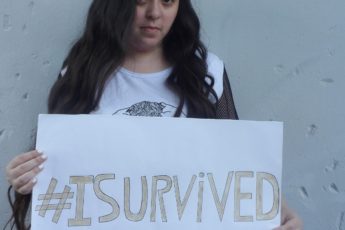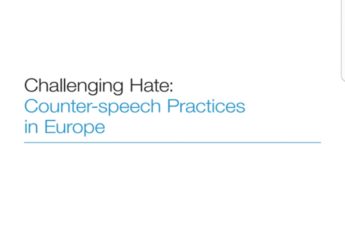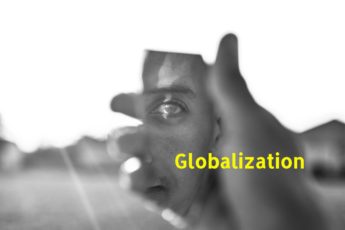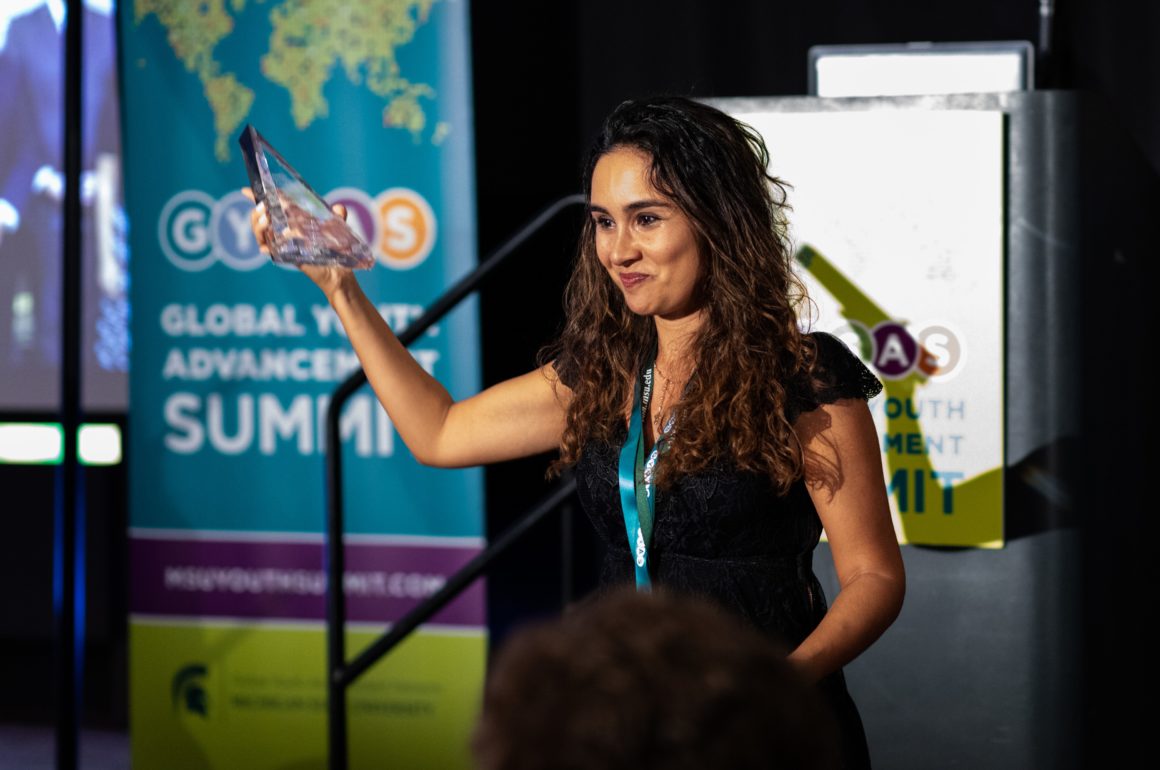
As part of the celebrations of the second anniversary of “Words Heal the World”, we had a chat with Beatriz Buarque, the founder of this organization. Last month, Words Heal has been awarded by the Michigan State University with an important prize: The Transcendence Award. Since we love creating new things, we decided to make a different interview. I interviewed her and she interviewed me. The results? You can check below.
Ignacio Albor: What was your first reaction when MSU told you Words Heal was nominated for the Transcendence Awards?
Beatriz Buarque: I had no Idea we were running for that prize. I went to Michigan State University to attend a Summit, the Global Youth Advancement Summit. It was a great honor to me to be among the 200 young leaders chosen to attend the summit. There was a gala dinner and when we arrived there, we noticed there would be an Awards ceremony. Everybody was wondering what was that because we didn´t know the university would give an award to some of the projects created by people who attended the summit. When the Assistant dean started explaining the meaning of transcendence, my life flashed before my eyes because when I finished my Masters in the UK, Words Heal the World was only a project but people started referring to it as an organisation. Therefore, I returned to Brazil and I had to make a decision: would I keep it as a project and it would probably die, or would I register it as an NGO and start looking for sponsors to reach a greater impact? I never saw myself as an entrepreneur and the possibility of running my own business was scary. Nevertheless, I decided to register it because my heart was telling me that was the right thing to do. It was difficult. Many people told me I was crazy, I felt terribly alone, but students gave me a hand to stand up whenever I felt I would not be able to carry on. So, when she announced that Words Heal the World transcended, I started crying because, yes, we transcended. We only reached that level because we worked together. Words Heal the World is not about me. It is about us. I only had an idea and I started inspiring students to use their skills to challenge hate. I usually say that young people only need to feel inspired. Once they are inspired, their creativity flows and they start developing strategies to tackle extremism by themselves. I receive messages from students on the weekend, at night, because their minds are working to shape a better world. The biggest challenge of working with youth is disengagement and at Words Heal we don´t have this problem because they are the main actors. They know that Words Heal belongs to them, and hence, they naturally start developing strategies. I believe that is why we are so different from other organisations. It is not because I developed a unique methodology to tackle extremism. It is because we really are a family. The ties that connect us go beyond the volunteering agreement.
Beatriz Buarque: How Words Heal has made an impact on your life?
Ignacio Albor: As you just said, WHW inspired me to keep fighting for what I believe. It gave me hope that things can change in a better way, and we shouldn’t wait for changes to be made, we have to make them happen. Words Heal also gave me the possibility to meet people from all over the world, with different cultures and different realities, but all fighting for the same objective: tackle extremism. This fact helped me to open my mind into diverse ways to understand global issues and dilemmas apart from gifting me new friends and colleagues that I will keep forever in my thoughts.
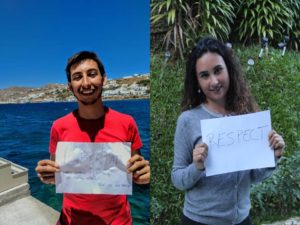
Ignacio Albor: WHW is not a normal NGO. How does it feel to run an organisation of students from all over the world, and now, internationally recognised by other prestigious institutions?
Beatriz Buarque: Good question! It feels life changing! Working with students had such a great impact on my life that my heart didn´t fit in the newsroom anymore. I simply could not readapt when I came back to the TV station that taught me everything I know today. At Words Heal, we become friends of our students and that is how we have relationships built on trust. They share their problems with me and I also share some of my problems with them to let them know that I am also a human being, that I also feel insecure, that I also make mistakes. Due to this special relationship, I manage to identify vulnerabilities and help students. That is how I helped students to cope with depression and some of them enhanced their self-esteem during their time with us. When we start working with a student who doesn´t believe in himself, who feel lonely, and a few months later we see the same student confident, developing strategies to challenge hate and inspiring other people to use social media for peace, when we see this student emerging as a leader, it is priceless! It proves we managed to touch his heart and make an impact not only in his life but also in people surrounded him. Now imagine the same thing happening to two, three, dozens of students? The impact of it is huge and that is what we are doing in the UK, Brazil, and Latin America. The Transcendence award recognised our impact and, honestly, I believe we start achieving that impact. Young people know the reasons that have motivated me to set up Words Heal are genuine because despite the lack of funding (we have done all this without funding), we are emerging as a reference when it comes to initiatives to empower students to tackle extremism. And we are reaching this position because we do it with our hearts and I encourage the directors who work with me to not put themselves on a higher position in comparison to students. We are equal. We are learning. We are devoting our time to come up with innovative ideas to challenge hate and shape a better world. We are all on the same boat. If you asked me what makes Words Heal different from other organisations, I would say: what makes us different is the fact that we challenge hate with our hearts. When we like someone, we connect with this person emotionally and we don´t have a hierarchy. We place ourselves on the same level as this person. That is exactly what we do. Students and journalists who volunteer at Words Heal: we are equal. We like each other. We are family!
Beatriz Buarque: Why do you think Words Heal is different from other organisations?
Ignacio Albor: In WHW we all have a word. We have total freedom of speech and we all have the right to talk. Everyone will listen to your ideas without any prejudice. The only condition to be part of the organisations is to have an open mind and the will to change the world.
Ignacio Albor: In what sense an international award as this changes WHW´s future?
Beatriz Buarque: I believe this award will give us the visibility we need to attract sponsors. We have produced four short-documentaries, developed 3 social media campaigns, and organised two events without funding. Our website has over 160,000 visits, we have thousands of followers on Facebook, and we are active in the UK, Brazil, and Latin America. We´ve done all this without funding. Imagine what we can do if we have sponsors? We intend to fund students´ trips to produce content to challenge hate, engage with people from different cultures, and challenge their own misconceptions. We also want to organise a conference to bring together our partner organisations and our students because one of our goals is to build bridges between students and civil society organisations. That would be amazing!
Beatriz Buarque: What do you think could be the next steps of Words Heal?
Ignacio Albor: I hope the NGO continues to include more young enthusiastic people to keep thinking solutions to the problems we have as a society. To generate a space where we can debate ideas and bring each other’s vision of the world we live on.
Ignacio Albor: What are the next objectives of WHW?
Beatriz Buarque: The next objectives of WHW are: start empowering students from the United States, establish a partnership with an Argentinian university to expand the outreach of our actions in Latin America, and organise the Day Against Antisemitism simultaneously in UK, US, Brazil, and Argentina. That is a dream that I really want to turn into reality.
Beatriz Buarque: Words Heal the World, to you, means…
Ignacio Albor: Diversity, knowledge, and cooperation. And those are the most important things to change the world.
By Ignacio Albor (University of Westminster-UK)


